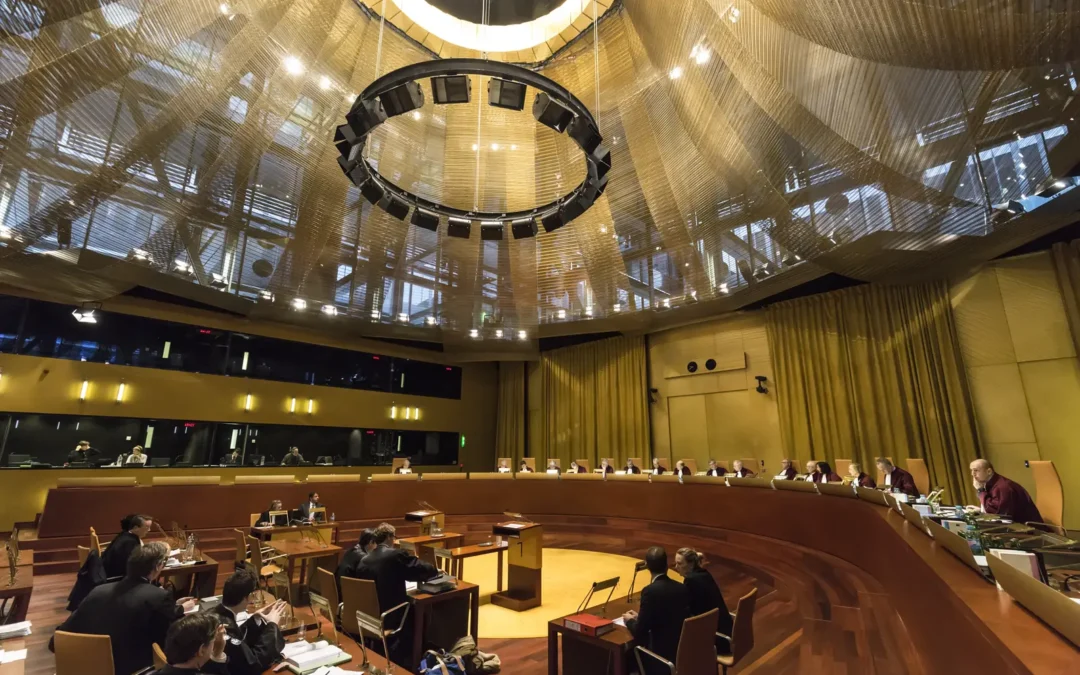A chamber of Poland’s Supreme Court created as part of the former Law and Justice (PiS) government judicial reforms is not a legitimate body, the Court of Justice of the European Union (CJEU) has found.
The chamber in question is responsible, among other things, for validating (or invalidating) the results of elections. It is due next month to do so with regard to the recent 15 October elections at which PiS lost power.
Link: https://t.co/HXCprnFzdh pic.twitter.com/XtkcTVAHQk
— Piotr Gąsiorowski 🇪🇺🇵🇱⚡ (@P_Gasiorowski) December 21, 2023
“In view of all the circumstances connected with the appointment of judges of the Extraordinary Review and Public Affairs Chamber of the Polish Supreme Court, an adjudicating panel of that chamber does not constitute a ‘court or tribunal’ for the purposes of EU law,” announced the CJEU on Thursday.
Its decision came in response to a request from the chamber itself, which had asked the CJEU for clarification on a legal question relating to its role in hearing an appeal from a judge who had been unwillingly forced into retirement.
However, the CJEU found that, because “the questions put by that chamber do not originate from a body having the status of an independent and impartial tribunal previously established by law as required by EU law…those questions [are] inadmissible”.
The body responsible for nominating judges in Poland no longer matches the institution enshrined in the constitution due to changes made by the government, which increased political influence over the body, the Supreme Court has found https://t.co/yPNMG4u8st
— Notes from Poland 🇵🇱 (@notesfrompoland) June 2, 2022
As with a number of other previous Polish and European rulings finding defects in Poland’s judicial system as a result of PiS’s reforms, the basis for the CJEU’s decision was the manner in which PiS overhauled the National Council of the Judiciary (KRS), the body responsible for nominating judges.
In 2017-18, the KRS was reconstituted to give politicians, rather than judges themselves, the right to choose most of its members. The European Court of Human Rights (ECHR) and Poland’s own Supreme Court have found that this rendered the body to no longer be independent of political influence.
For this reason, the ECHR has also found the Supreme Court’s Extraordinary Review and Public Affairs Chamber to not be “an independent and impartial tribunal established by law”, most recently in a case concerning former President Lech Wałęsa.
Lech Wałęsa's rights were violated as a result of the Polish government’s overhaul of the judiciary, the European Court of Human Rights has ruled
It ordered Poland to pay him damages and take steps to address "systemic violations" of judicial independence https://t.co/QAOaTjtQ0F
— Notes from Poland 🇵🇱 (@notesfrompoland) November 23, 2023
In response to yesterday’s ruling, justice minister Adam Bodnar said that it was “further confirmation of the need to urgently restore the rule of law and introduce legislative changes”.
The new government, led by Donald Tusk and sworn into office last week, has pledged to take a range of steps to undo the judicial changes introduced under PiS. Earlier this week, its majority in parliament passed a resolution declaring PiS’s overhaul of the KRS to have been unconstitutional.
“Only independent, independent courts will guarantee the legal security of Polish citizens,” tweeted Bodnar yesterday.
Tylko niezawisłe, niezależne sądy będą gwarantem prawnego bezpieczeństwa polskich obywateli.
Dziś zapadł fundamentalny wyrok TSUE uznający, że Izba Kontroli Nadzwyczajnej i Spraw Publicznych Sądu Najwyższego nie jest organem mającym status niezawisłego i bezstronnego sądu w… pic.twitter.com/iq9zDqHUDk
— Adam Bodnar (@Adbodnar) December 21, 2023
The spokesman for the Supreme Court, Aleksander Stępkowski – a judge who was himself appointed by the KRS after PiS’s reforms – told broadcaster TVN that the CJEU’s findings would be analysed.
In the meantime, “judges from the Chamber of Extraordinary Review and Public Affairs will not submit preliminary questions to the Court of Justice of the European Union…[and] those that have been asked will probably be withdrawn”.
Among the tasks given by PiS to the chamber when it was formed was validating or invalidating election results within 90 days of them being held. It has not yet done so with regard to the 15 October parliamentary elections – at which PiS lost its majority – but is scheduled to do so on 11 January, two days before the final deadline.
If it finds the elections to have been invalid, it can order them to be held again in full or in part.

Notes from Poland is run by a small editorial team and published by an independent, non-profit foundation that is funded through donations from our readers. We cannot do what we do without your support.
Main image credit: Court of Justice of the European Union Press materials

Alicja Ptak is deputy editor-in-chief of Notes from Poland and a multimedia journalist. She has written for Clean Energy Wire and The Times, and she hosts her own podcast, The Warsaw Wire, on Poland’s economy and energy sector. She previously worked for Reuters.



















